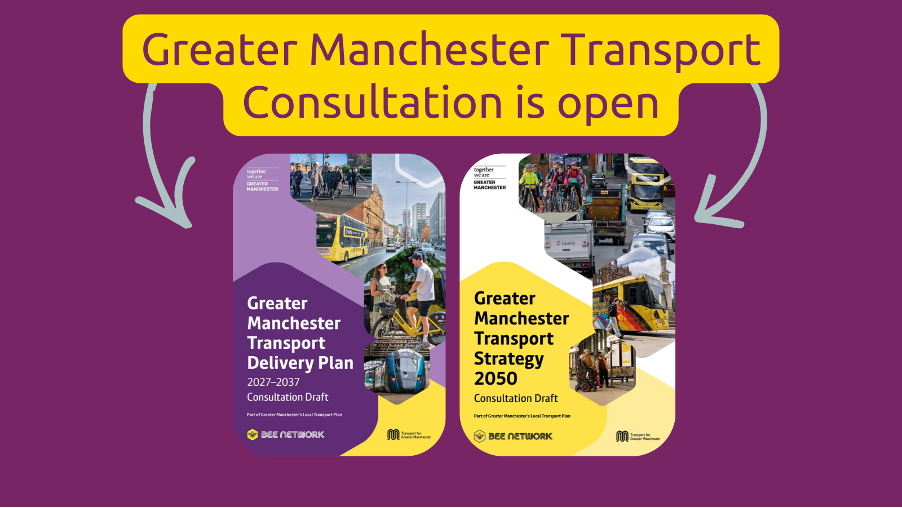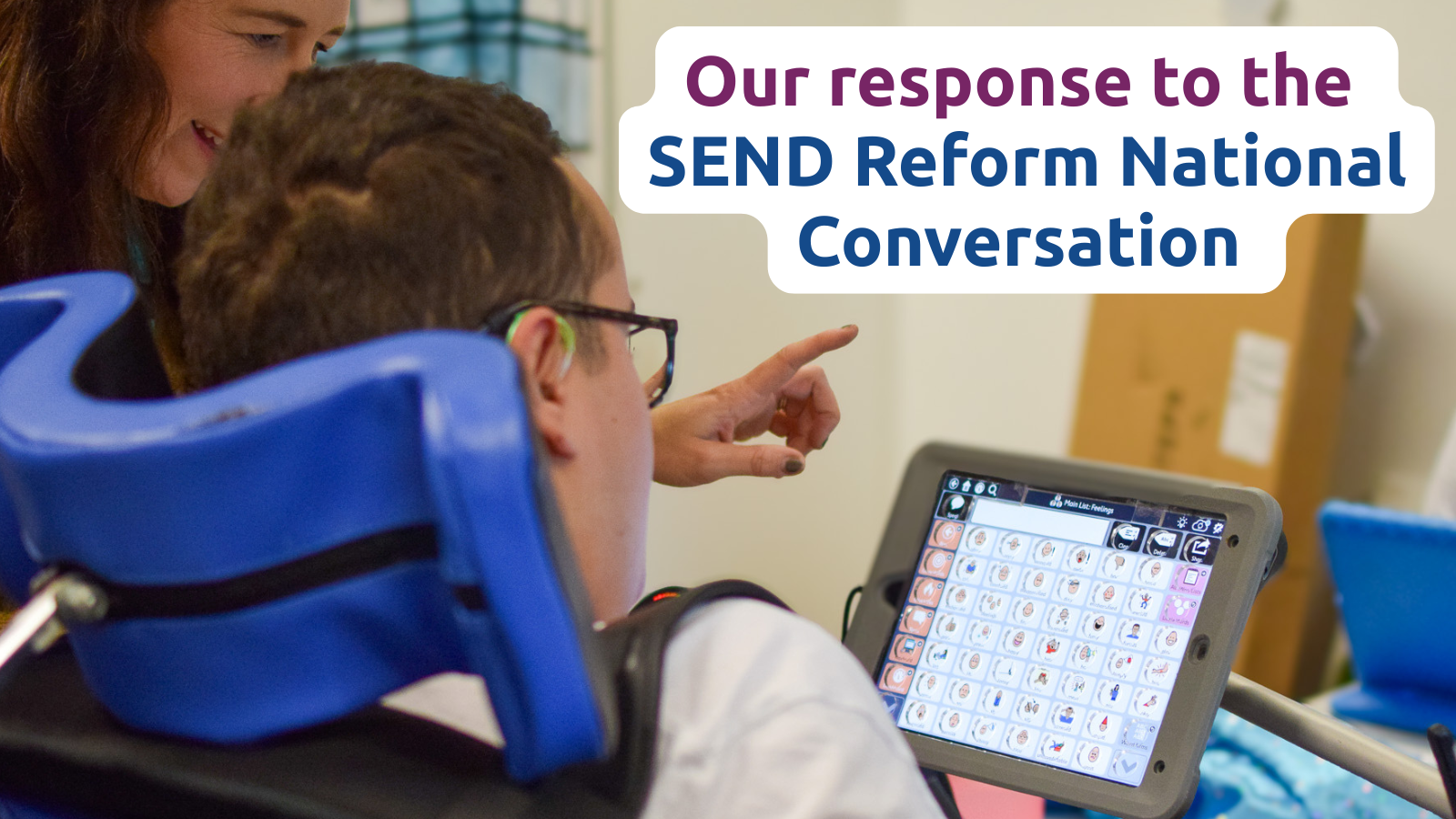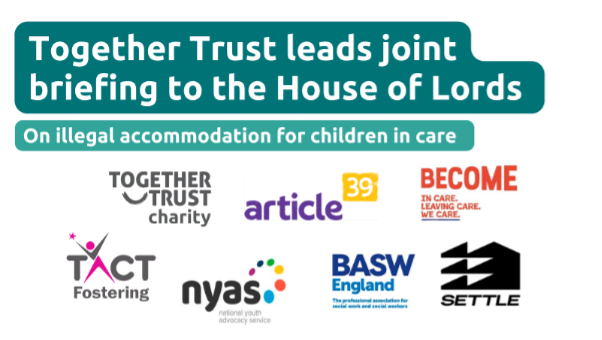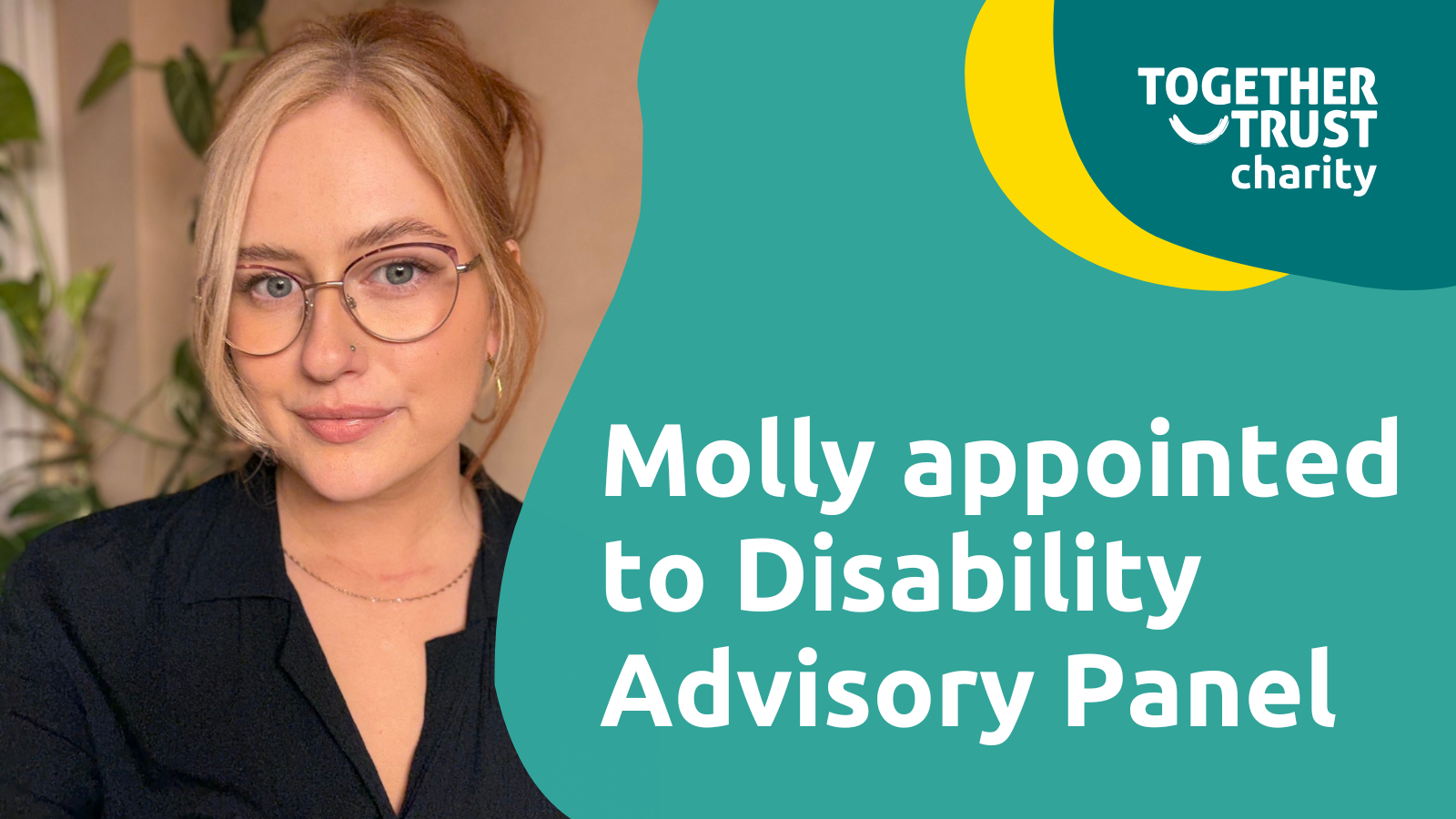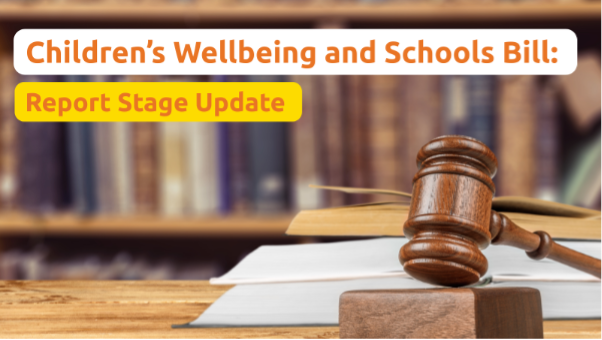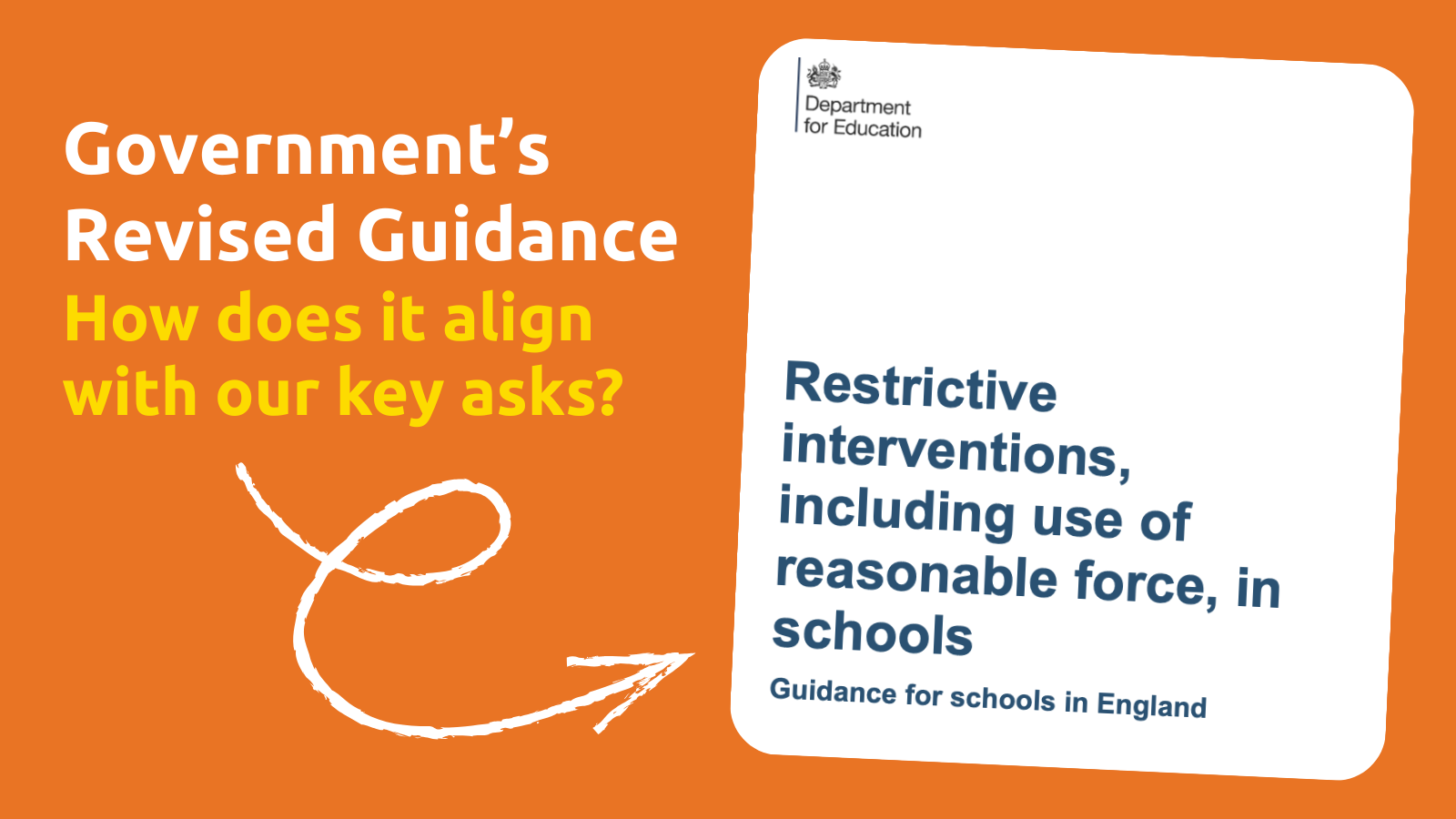Campaigns
The people we support tell us that they face daily discrimination, hardship and barriers. Things must change.
Every day, we listen and learn from the people we support so we can work together for change. Join us.

What we’re fighting for
-

SEND Reforms
: SEND ReformsThe way children and young people with special educational needs and disabilities (SEND) are supported in England is not fit…
-

Mental Health
: Mental HealthMental health remains one of our campaigning priorities – and we will continue to fight for change where it is…
-
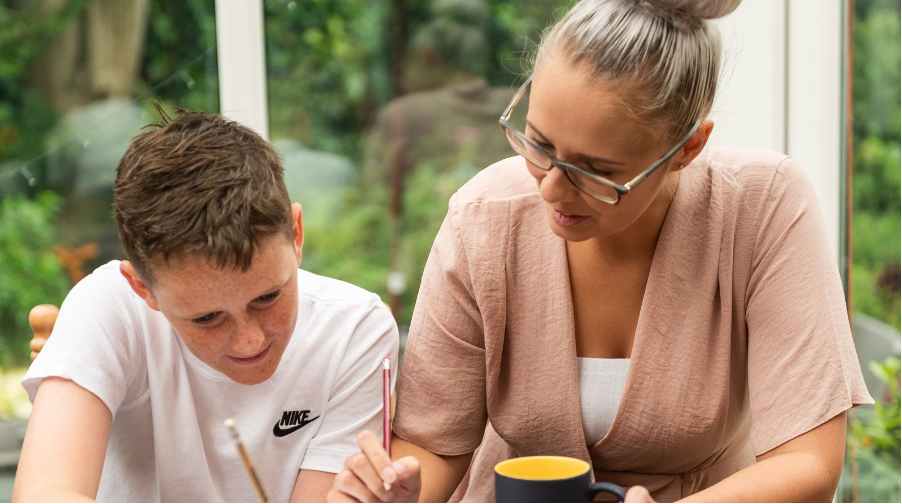
Children in Care and Care Leavers
: Children in Care and Care LeaversWe believe that every child in care should be guaranteed care up to the age of 18. Still, thousands of…
-

GM Rail Access
: GM Rail AccessWe believe accessible travel is essential for disabled people to live full and independent lives.
Where we stand
Care leavers
Care experienced people deserve the best possible life chances, but they tell us they continue to feel stigmatised and alienated from society.
We’re committed to challenging stereotypes and shattering misconceptions until communities value and support care leavers as they should.
We want to see long-term support in place for care leavers, starting from someone’s initial transition from the care system long into independence.
We also want the age of care leavers moving into independent accommodation raised to 25, and appropriate ongoing support offered throughout someone’s life, so they can truly thrive.
Children and young people’s mental health
The government’s prioritisation of children and young people’s mental health is a step in the right direction. But the investment doesn’t go far enough.
Support services continue to be cut. CHAMS and the NHS strain under the weight of referrals. And young people are not getting the help they need. Early intervention is critical so young people can build resilience and get the right support to manage their mental health.
We’re campaigning for critical early intervention services. So that young people can build resilience and get the right support to manage their mental health.
Children in care
The North West has some of the highest levels of looked-after children in the country. Unless we invest in early intervention and robust support for families in crisis, these numbers will increase.
Public perception of young people in care needs to change. We’re working towards removing the stigma and barriers that looked-after children face. We want to see the care system transformed, with love at the heart and care-experience people making decisions.
Employment and lack of opportunities for people with disabilities
Employment can present real barriers for the people we support. Putting them at risk of poverty, marginalisation and lower quality of life.
Despite government initiatives, disabled people are still less likely to find employment than their non-disabled peers. Disabled people can also face workplace discrimination, lack of support and unequal pay. There needs to be a change in attitude.
We’re calling for the government to take further action now. And to ensure that disabled people have the same rights as non-disabled people to access a secure, fair workplace.
Transitions
The transition from children’s to adult services can be challenging and upsetting for young people and their families.
Changes to education, health and care plans (EHC plans) should mean that there is no hard transition to adult services. But families are reporting that this isn’t the case.
We want to see the appropriate support agreed years in advance. As well as support for children and young people to say what changes they would like to make to their plans. Everyone should have a voice in their care and the outcomes they want to achieve
People with profound and multiple learning disabilities and their families
People who have profound and multiple learning disabilities (PMLD) are among the most vulnerable in our society. Yet their needs and rights are frequently neglected.
One of the greatest barriers faced by people who have PMLD is the negative attitudes of others. These judgements can prevent people receiving more innovative forms of support or healthcare. Simply because someone else doesn’t feel they will benefit, or that the costs are too high.
Such judgements show a failure to understand the contribution every individual makes to the lives of those around them. We want to make sure people with PMLD are fully included in society. And to make sure they have the same human rights as everyone.
SEND reforms
Despite the reform of the SEND system, parents continue to face unnecessary battles. The system is complex. And there is little guidance or support for desperate and vulnerable families.
As parents fight for the support their children need, local authorities continue to spend vital funds on needless tribunals. These decisions place unnecessary strain on families mentally and emotionally and on local authorities financially. We want to see the person-centred system that was promised in action, and the voice of families and their children respected.
Our research
A key part of our campaign team’s work involves researching and communicating issues relevant to the Together Trust’s policy priorities, both internally and externally.
This research supports our advocacy with decision-makers, enhances our services, and builds credibility.
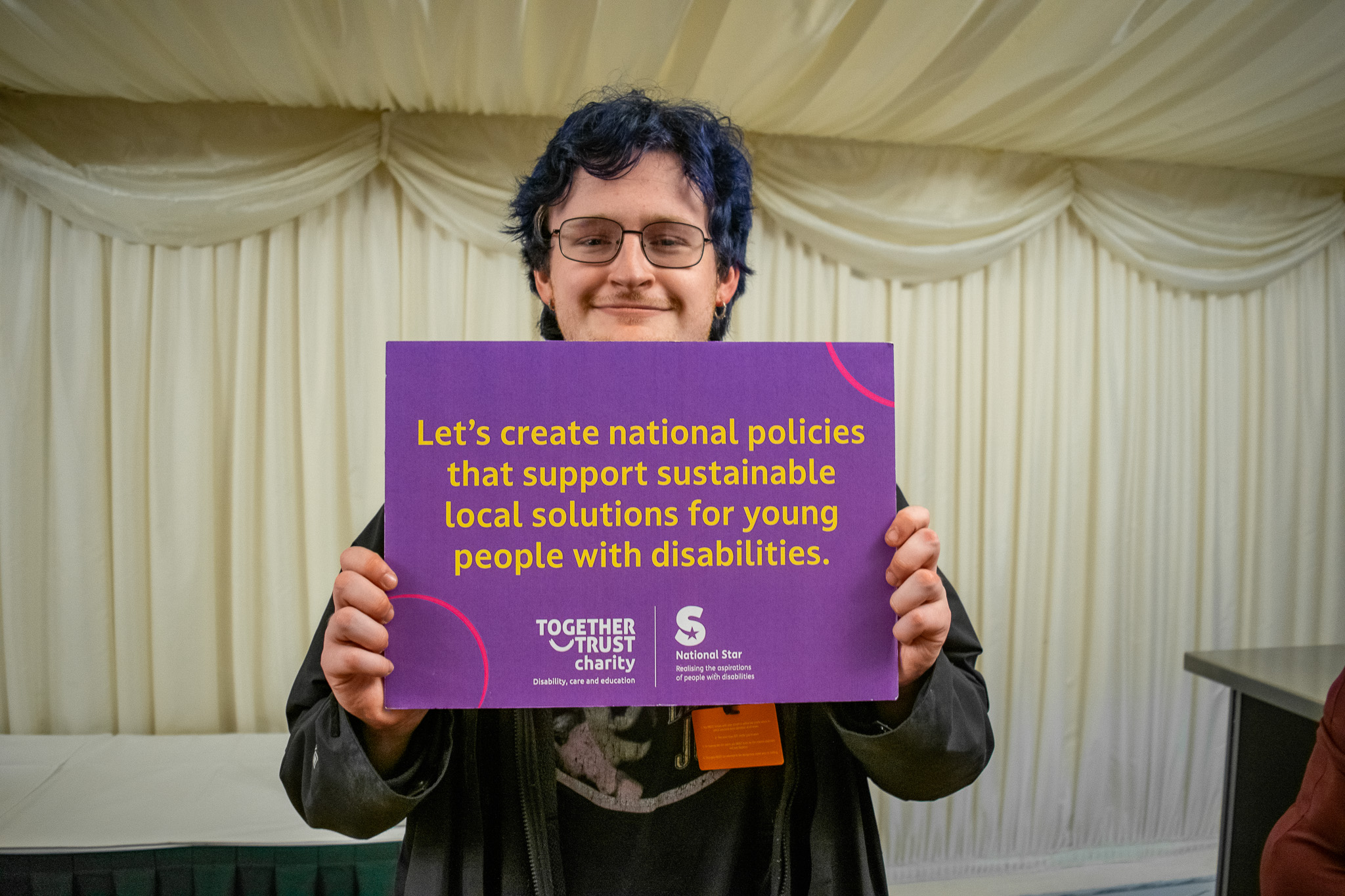
Help us fight for change
Keep up-to-date with our regular updates where we share what we’re up to and how you can help make a difference.
We stand together
Everything we do is in collaboration with the people we support and people with lived experience. We also partner with like-minded organisations at a national level to share practice and campaign for change. Because together we a brighter future for all.
Alliance of Children in Care and Care Leavers
The Alliance for Children in Care and Care Leavers is a a coalition of organisations that work to support children in care and care leavers.
We’re calling for a care system that promotes resilience and emotional wellbeing by helping children and young people to recover from past harm.
Our plan of work to ensure that every single child has the best possible chance to recover from trauma and realise their full potential focuses on three key themes:
1. The Mental Health and Wellbeing of Children in Care and Care Leavers
Mental health and wellbeing have long been central to the Alliance’s work. We have been successful in amending legislation to include specific arrangements for children in care and care leavers. The Alliance will work with policymakers to secure timely and tailored mental health support for all children from the moment they arrive into care. We will monitor the progress of existing government commitments and will seek to influence new policy in this area.
2. Stability
The Alliance believes that stability is crucial to recovery from trauma, and that the gaps in the system that undermine stability must be addressed. Stability of care placement, stability in relationships and of educational setting are central to the well-being of children in care. For far too long, there has been insufficient focus on the idea of stability, to the detriment of helping looked after children and young people recover from the psychological impact of abuse and neglect. The Alliance will continue to promote stability as key to supporting the resilience and emotional wellbeing of all children in and leaving care.
3. Eighteen Plus and Care Leavers
Some progress has been made by the Alliance and other organisations in making the case for softening the cliff-edge that sees children in care and care leavers losing access to support services and having to leave care placements as soon as they turn eighteen. The Alliance will continue to push for better funding for Staying Put and will monitor and seek to influence developments including Staying Close.
Disabled Children’s Partnership
The Disabled Children’s Partnership is a major coalition of more than 80 organisations campaigning for improved health and social care for disabled children, young people and their families.
We believe that disabled children, young people and their families should have access to the services they are entitled to, when they need them. We are not asking for disabled children to be singled out or treated differently. We are asking for fairness. But in England today, this simply isn’t happening. Disabled children face four big challenges.
- There are not enough services
- Many of those that exist are not good enough
- Families cannot access them easily
- Services do not always work together and communicate well with each other
This leads to an unacceptable contrast between the quality of life and the opportunities available to disabled children and their families, compared to those without disabilities. Simple tasks such as visiting a park, going to school or doing the weekly shop are often extremely challenging and in some cases impossible. But this does not need to be the case.

